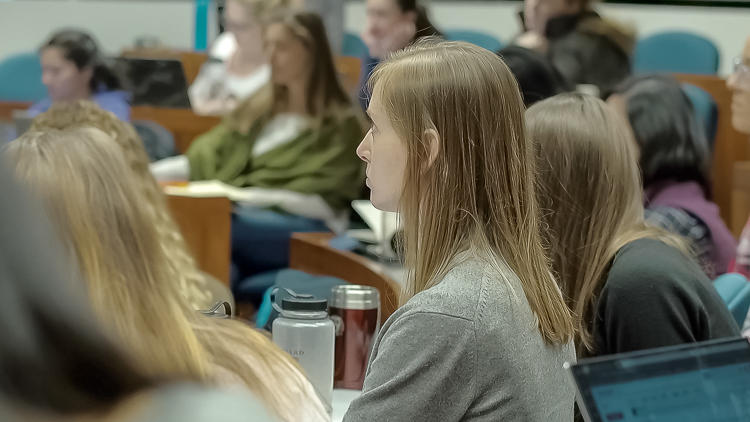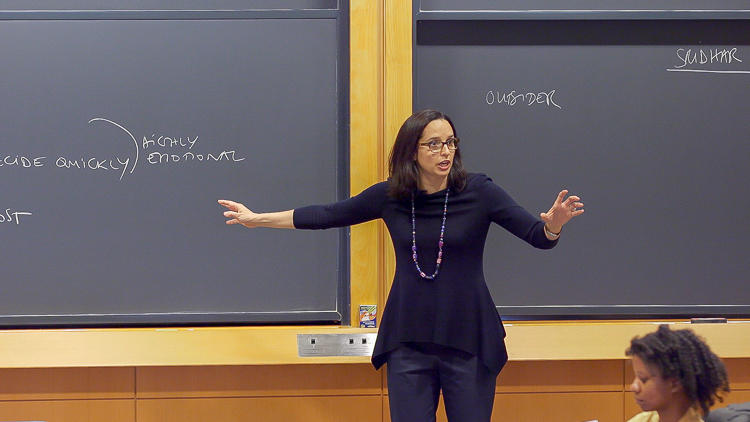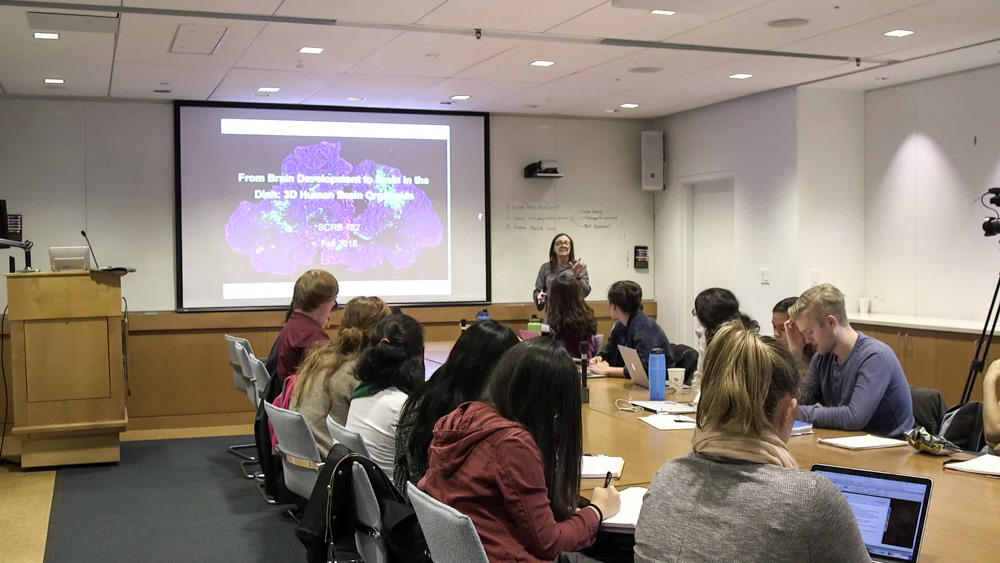Instead of using lectures to simply deliver information, instructors can also use them to create opportunities for students to construct new knowledge themselves. In this video, Paola Arlotta explains how she presents material to students so they first construct their own understanding of concepts, then builds on their ideas to develop more formal disciplinary knowledge and vocabulary.
Building on Student Comments to Teach Academic Concepts
Instructor
Paola Arlotta, Professor of Stem Cell and Regenerative Biology
Student Group
Undergraduate
School
Harvard College
Course
Got (New) Brain? The Evolution of Brain Regeneration
Group Size
22 students
- Coach students toward new understandings rather than simply telling them what they need to know. When a student makes a simplified point, guide them to a more complex one by posing questions that probe for deeper understanding.
- Instead of just transmitting presenting your definition, first ask students to define the term or concept in their own words, then build on their responses to reach a final, co-constructed definition.
- According to Bransford and colleagues, prior knowledge facilitates the acquisition of new knowledge. This suggests that identifying students’ prior knowledge and framing academic concepts in a student-centered manner can promote learning (2000).
- Van Kesteren and colleagues explain how the formation of a schema, or mental model, plays a role in the process of active learning. Previously acquired knowledge is an integral component to a cohesive schema, suggesting that instructors should integrate student previous knowledge in their courses (2010).
- Using student contributions substantively to shape the direction of the course could contribute to a sense of student self-efficacy. In a study conducted by Bouffard-Bouchard, researchers instilled either high or low self-efficacy beliefs in undergraduate college students. Students in the high self-efficacy group tended to set more ambitious goals for themselves and performed better academically when compared to the low self-efficacy group (1990).
- Harvard’s Derek Bok Center on Teaching and Learning provides “Techniques for Responding” to students
- MIT professor Steven Hall describes how his role transitions from a lecturer to a coach in this video about his “Experience of Teaching an Active Learning Recitation”




